Henry Kissinger dies at the age of 100: what was his policy of diplomacy?
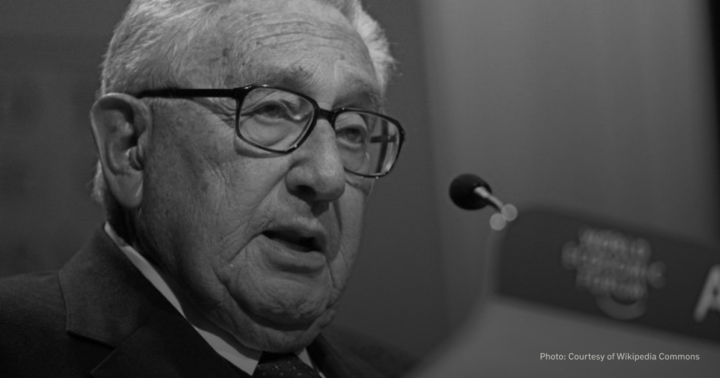
On November 29, former US Secretary of State Henry Kissinger died. According to his consulting firm, Kissinger Associates, the diplomat died at his home in Connecticut.
Despite his age, he actively participated in White House meetings, published a book on leadership styles, and testified before a Senate committee on the nuclear threat from North Korea. In July 2023, he surprisedly visited Beijing to meet Chinese President Xi Jinping.
Svidomi gathered the most important information about the diplomat.
Who is Henry Kissinger?
Henry Alfred Kissinger was born to Jewish parents in 1923 in the Bavarian town of Fürth, Germany. His family emigrated to the United States in the late 1930s because of the Nazi dictatorship. There, he became a US citizen, studied at Harvard University, served in the army and returned to Germany after World War II as a US military counter-intelligence officer.
In the 1950s, he became the director of the University's Center for Government and International Studies.
In 1969, he was appointed National Security Advisor to the President of the United States. He served in this position in Richard Nixon's and Gerald Ford's administrations until 1975.
In 1973, Kissinger combined the two most important foreign policy posts in one person: National Security Advisor and Secretary of State. It was the only time in US history that one person held these two positions simultaneously.
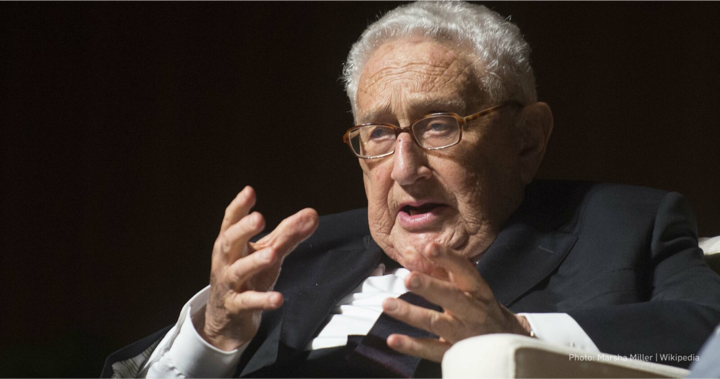
He served as Secretary of State until 1977. In 1982, he founded Kissinger Associates, a consulting company that advises American and other multinational companies.
Henry Kissinger is a prominent representative of the "realpolitik" approach, which is based on power and real conditions and opportunities, with little regard for ideology and human rights. This is his approach to US foreign policy.
The Financial Times writes that his general disregard for human rights has led to a serious misunderstanding of the importance of soft power (an element of foreign policy used by states to increase their influence through the appeal of their values and institutions — ed.)
The war in Vietnam
Kissinger kept secret the US bombing of Cambodia and Laos in 1969, which contributed to the escalation of the Vietnam War, without informing Congress or the American public.
Kissinger had the authority to conduct secret negotiations with the North Vietnamese, which led to the Paris Peace Accords, which was supposed to end the Vietnam War.
Kissinger and North Vietnamese President Le Duc Tho were awarded the Nobel Peace Prize. But Tho refused the prize, saying the negotiations had not yet brought peace, and two members of the Nobel committee resigned over questions about the secret US bombing of Cambodia.
The Financial Times writes that the award was premature, as the last American civilian and military representatives did not leave Ho Chi Minh City (Saigon — ed.) until 1975.
It was revealed that Kissinger had ordered the FBI to wiretap members of the National Security Council to find out who had leaked news of the Cambodia bombing to the media, as part of the Watergate scandal (relating to an attempt to bug the Democratic Party headquarters in Washington during the 1972 presidential campaign, which led to Nixon's impeachment by Congress — ed).
The US and the USSR: détente
Relations between the Western powers and the Soviet Union during the Cold War were characterised by a period of so-called détente. This refers to the years 1969-1979, i.e. from the beginning of the negotiations between the USA and the USSR on the limitation of strategic offensive arms and the beginning of the Soviet aggression against Afghanistan.
The key event of this period was Richard Nixon's official visit to the USSR in May 1972. Apart from Franklin Roosevelt's participation in the Yalta Conference, this was the first visit by a US president to the USSR in history. Kissinger was the organiser of the visit and the main negotiator on the American side.
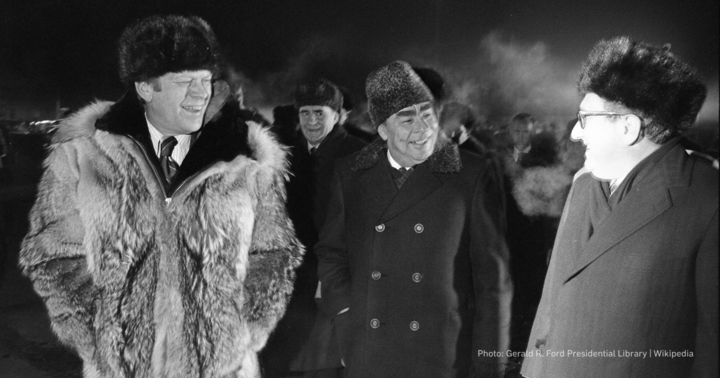
During the visit, Richard Nixon and Leonid Brezhnev signed the Anti-Ballistic Missile Treaty, under which the parties agreed not to develop, test or deploy sea-, air- or ground-based missile defence systems or components to combat strategic ballistic missiles and not to deploy missile defence systems on their territory.
Kissinger and East Central Europe
Henry Kissinger believed that the United States should not interfere in the affairs of Eastern Europe and that the region should be recognised as a sphere of influence of the USSR.
According to Edward Rożek, a professor of political science at the University of Colorado, it was during Kissinger's time that "the map of the world changed dramatically in favour of the Soviet Union".
This position was reversed when President Jimmy Carter and his National Security Advisor Zbigniew Brzezinski came to power, seeking a strategic balance with the USSR and respect for human rights.
Rapprochement with China
In 1971, when there were no official relations between the US and China, Henry Kissinger secretly travelled to Beijing to organise a visit by Richard Nixon.
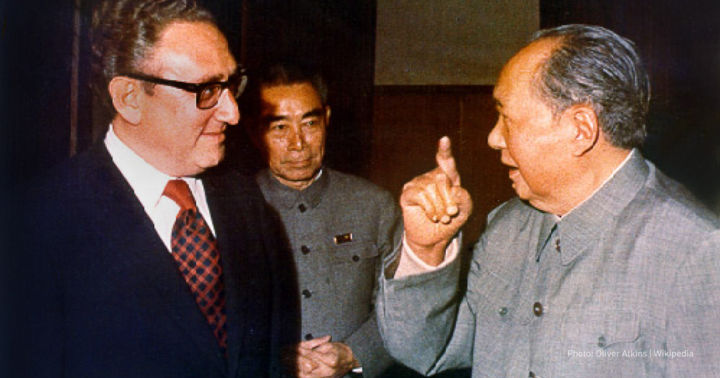
It took place the following year, in 1972, when the American president met with the country's top leaders, including Mao Zedong. It was made possible after the United States agreed to recognise Taiwan as part of the PRC and withdraw its troops from there.
After the visit, US-China relations began to normalise, and the Chinese economy entered the global market.
Kissinger and Ukraine
In 2008, Henry Kissinger opposed Ukraine's accession to NATO, arguing that it should remain in a sphere "which the Russians consider to be a space of their own identity".
He called on the US to halt NATO's eastward expansion until Ukraine's "true independence" was achieved. At the time, on the eve of the Bucharest NATO summit, there was talk of removing from the agenda the granting of a Membership Action Plan to Kyiv (as a result of the summit, Ukraine did not receive the MAP - ed).
After the occupation of Crimea (Qırım), Kissinger believed that the West had made a mistake by viewing the occupation of Crimea (Qırım) as a quest for world domination and criticised the imposition of sanctions against Russia.
He believed that Europe and the United States "did not understand the significance of the events that began with negotiations on economic relations between Ukraine and the European Union, resulting in protests in Kyiv (the Revolution of Dignity — ed.)".
The sanctions, according to the political scientist, "carry the risk that in the future the great powers will try to take protective measures and begin to regulate their market even more".
Kissinger and Ukraine: a change of perspective
On May 26, 2022, at the Davos Economic Forum, Kissinger advised Ukraine to surrender some of its territory to Russia.
In July 2022, he said he was wrong and that Ukraine should not give up territory. At the time, he said that the Russian invasion of Ukraine demonstrated that there was no point in keeping Kyiv from joining NATO. The idea of a neutral Ukraine makes no sense either.
How did Ukraine react to Kissinger's death?
The head of the Office of the President of Ukraine, Andrii Yermak, wrote that Kissinger was a controversial but "undoubtedly outstanding figure".
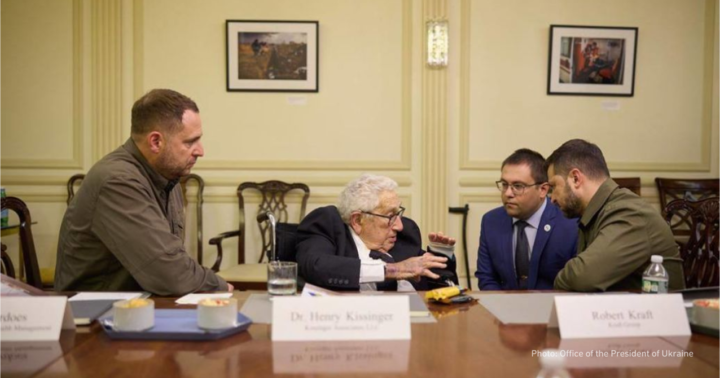
Ukraine's Foreign Minister Dmytro Kuleba said that "Henry Kissinger's century was not easy, but its great challenges matched his great and inquisitive mind".
"He changed the pace and the face of diplomacy. Clear in thought, prolific in writing. His intellectual legacy will continue to influence the way we understand diplomacy and world order. It was an honour to have known him," said Kuleba.


